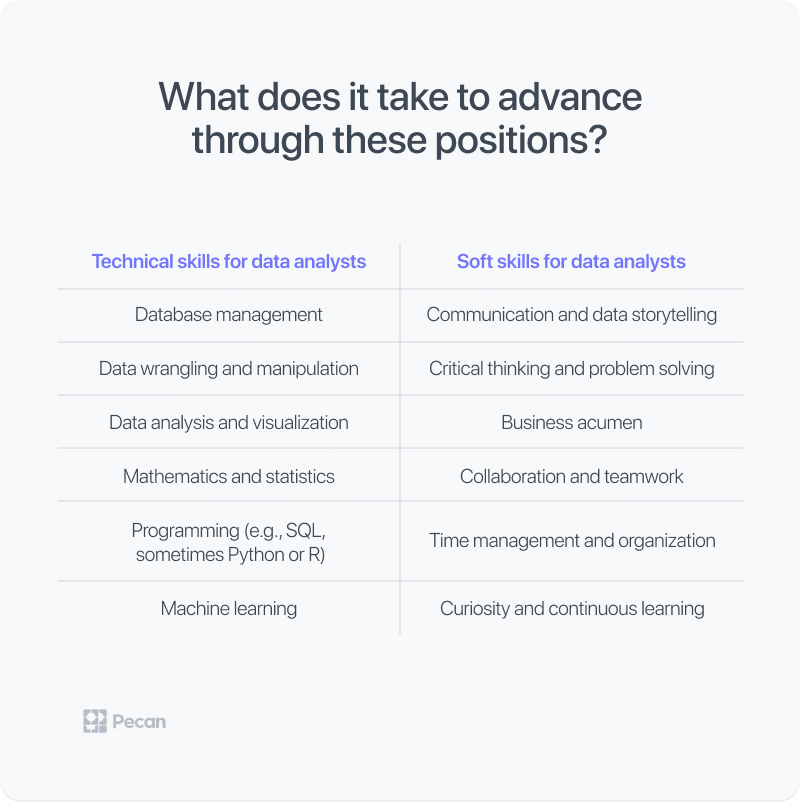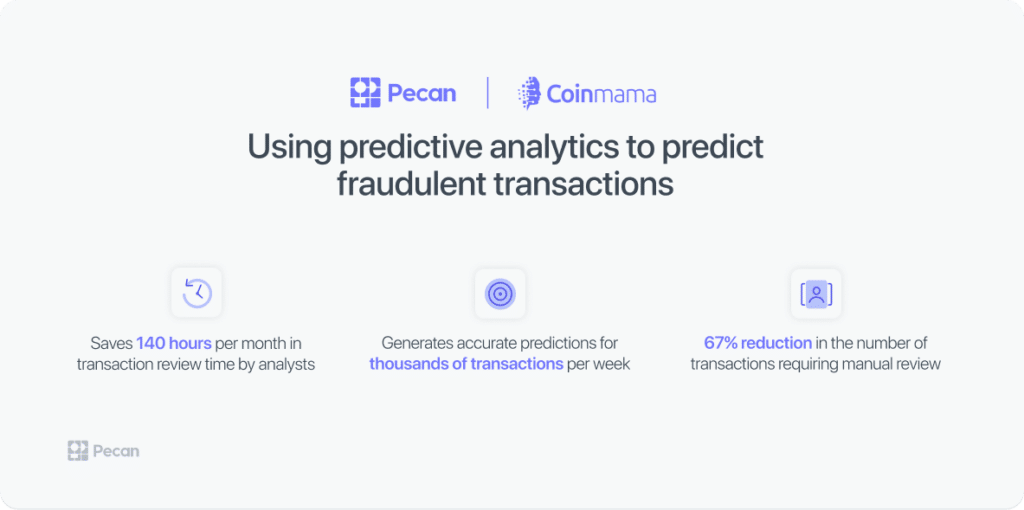There’s one thing all professionals have in common: the pursuit of career advancement. This may mean achieving a more senior job title, increased compensation, additional responsibilities, greater organizational impact, or all of the above.
But what happens when you hit a ceiling – when you feel like you’ve acquired the skills and expertise to do your job, but aren’t sure how you can take your career to the next level?
The answer to this question will vary depending on your profession and other circumstances, but ultimately, it comes down to your ability to provide added value to your organization. If you’re a data analyst, it will largely depend on your ability to accomplish three key objectives:
- Unifying data from multiple sources and touchpoints in order to derive meaningful insights
- Helping VPs and business owners achieve their KPIs through data-driven insights and actions
- Staying up to date in a field that’s inundated with new tools, technologies and techniques
Whether you’re just starting your career in data analysis or are a seasoned professional looking to propel your career forward, this article will reveal how you can increase your value and impact as a data analyst.
The typical career path of a data analyst
Your career progression will vary depending on your industry, organization and individual aspirations, but the typical career path of a data analyst is as follows:
Entry-level Data Analyst: Most data analysts who enter this role will have a bachelor’s degree in a related field, and are responsible for collecting, preparing and analyzing data. Getting started as an entry-level data analyst typically requires proficiency in SQL, Excel and a tool like Power BI or Tableau, as well as knowledge of key concepts such as data mining and ethics.
Senior Data Analyst: As an analyst gains experience, they will often be promoted to an associate or senior position. They become responsible for leading data analysis projects, presenting insights to stakeholders, and potentially managing junior data analysts.
Analytics Manager: Data analysts who progress in their career may eventually find themselves overseeing a team of data analysts and data scientists, and being responsible for building predictive models and designing experiments.
Director of Analytics: This is generally the highest level in the data analytics career path, where one becomes responsible for leading the data analytics department, setting overall data strategy, and presenting insights to executive leadership. (A more senior, yet rarer, title would be Chief Data Officer or Chief Analytics Officer.)
In some cases, a data analyst may choose to specialize in certain areas of data analysis (e.g. machine learning, digital marketing, operations) or become a data scientist. Data scientists typically have a strong background in statistics, machine learning and programming, and are responsible for building predictive models and designing experiments.
Alternatively, data analysts may transition to other roles, such as in product management or data engineering.
What does it take to advance through these positions?
For a data analyst to be successful in their role and advance their career, a combination of technical and soft skills is required. Some of the most important skills are listed below:
One skill we’d like you to pay attention to is “business acumen” – the ability to understand business needs and industry trends, identify opportunities and risks, make informed decisions, and prioritize resources in order to achieve business goals. Here’s why…
Making real business impact is the key to advancement
Once you’ve established yourself as a competent data analyst, this “business acumen” is what will enable you to create a meaningful and recognizable impact on your organization.
Every organization cares about its bottom line. If you can bring in additional revenue or save money through your efforts, you’ll be seen as a more valuable part of the company. This puts you in a strong position to advocate for your advancement based on your results, whether that means justifying a higher salary or contending for a senior position.
The problem?
Data analysts traditionally lack certain skills and expertise required to create this kind of direct impact. They must partner up (and share credit) with data scientists and engineers, who will bring their own approaches and priorities to the table – if they exist in your organization in the first place.
Although data analysts and data scientists have a lot in common, they work with data in different ways. And for a data analyst to acquire data-science skills, they would need to undergo a significant amount of time and training, a steep learning curve, and possibly even a change of employer in order to have that opportunity.
As a data analyst, you may find that these obstacles limit the types of projects you’re able to take on, the impact you’re able to have, and ultimately, your ability to advance your career.
The good news?
Once you have the skills and expertise of a seasoned data analyst, acquiring data-science skills is not the only way to achieve greater impact in your role and provide additional value to your organization.
Predictive analytics is the key to greater impact
For most data analysts, the best and fastest way to generate additional business value is by using a low-code machine learning platform that allows you to 1) leverage your existing skills, and 2) move from traditional business intelligence to predictive analytics.
Gone are the days of creating rough statistical models that use only two or three variables to anticipate business trends and behavior. Instead, you can use machine learning to analyze historical data based on hundreds of variables, and predict individual customer behavior with a high degree of accuracy,
Evolving from descriptive insights to predictive insights will allow your company to anticipate potential problems and opportunities, make more informed decisions more quickly, and take proactive measures to improve their bottom line.
There are numerous ways for you to drive tremendous ROI – from preventing customer churn, to optimizing multi-channel marketing spend, to maximizing upsells and cross-sells, to identifying customers with highest projected lifetime value.
In one example, Coinmama’s data analysts use our low-code predictive analytics platform to better understand customer behavior. This has allowed them to dramatically reduce internal costs and inefficiencies, as highlighted below.
The key thing for you, a data analyst, to remember is that such a platform will enable you to drive additional business value using your existing skill set. This will not only bring greater results for your company, but also impress the leaders in your company, give you a competitive edge, and help you achieve long-term career success.
Key takeaways
- Once you have established yourself as a data analyst, advancing your career will largely depend on your ability to drive meaningful business impact.
- The way you can create this impact, and demonstrate the value of your work, is by helping your organization improve its bottom line.
- The best and fastest way to achieve this is by using a low-code predictive analytics platform that’s designed specifically for data analysts.
Ready to see how easy it can be to use predictive analytics to supercharge your data analytics role? Give us 30 minutes of your time and let us show you how it works, or sign up for a free trial now and try it yourself!





